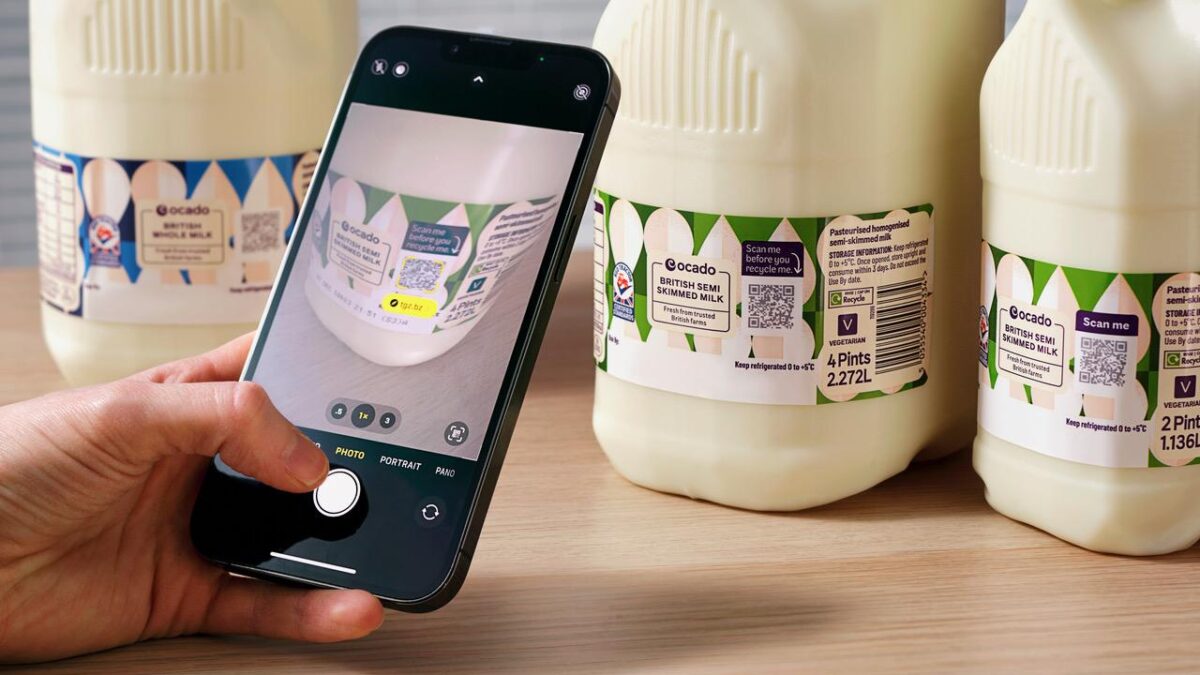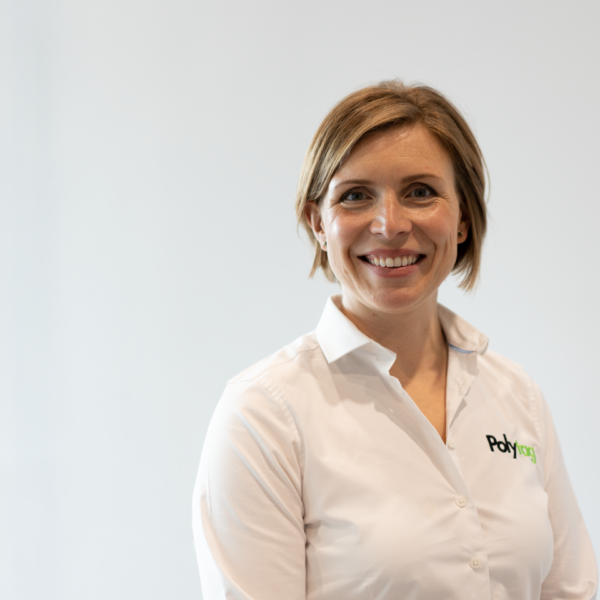U.K. Testing Digital Deposit Return Schemes for Plastic Milk Bottles

Consumers stand to earn cash back for recycling jugs in curbside bins
A trio of companies in Europe are striving to demonstrate that digital deposit return schemes (DDRS) can work when it comes to recycling plastics packaging. Welsh recycling technology company Polytag Ltd. is teaming up with Stockholm-based app developer Bower and British online grocer Ocado Retail Ltd. on a trial in the U.K.
From mid-July, Ocado customers have been able to scan a unique QR code on Ocado’s private label-brand two- and four-pint plastic milk bottles to receive a financial reward for putting their packaging in a recycling bin.
Project Uses an App and Unique QR Codes
More than 8 million Ocado fresh-milk bottles feature Polytag’s “unique-every-time” QR codes on their labels. The first 20,000 codes scanned will give customers 20 pence (about 25 cents) back per bottle in their digital wallet through the Bower app. Users can withdraw this money to their bank accounts. The QR codes on the bottles can be scanned only once, preventing multiple claims.

Alice Rackley, Polytag CEO and co-founder.
“At the current “claim rate,” said Polytag CEO and co-founder Alice Rackley, “we anticipate all rewards will be claimed after six to eight weeks.” She said in an email interview that the partners will assess the success of the trial through “a combination of customer feedback, plus proof of the technology and integrations all working seamlessly to collect never-before-seen data on packaging lifecycles at barcode level.”
Those who scan barcodes after the program reaches its stated target goal of 20,000 rewards will be eligible via the Bower app to earn alternative perks.
Consumers need to download the Bower app, set up their account and add their regular recycling bins and bank account. Once they scan the QR code on the milk bottle through the app and dispose of the packaging in their registered recycling bin, they can withdraw the money.
Rackley, a former executive with retail giant Marks & Spencer plc, said the partners have been working for the past six months to put this project in place. “It’s been quite an accomplishment achieving so much in such little time,” she said. “We’ve been able to roll out quickly because our technology is easy to deploy.”
The 20 pence reward is equivalent to the future deposit amount under the U.K.’s upcoming Deposit Return Scheme (DRS) legislation, which the government earlier this year proposed delaying until 2025.
Potentially ‘Game-Changing’ Technology
Laura Fernandez, senior packaging and sustainability manager at Ocado Retail—a 50/50 joint venture between Hatfield, England-based Ocado Group and Marks & Spencer—said: “To be able to launch a workable digital deposit return scheme that pays consumers back for recycling is a game-changing move for recycling and the circular economy in the U.K. We already know that Ocado shoppers have an appetite for such a scheme. When we surveyed them last year, 80 percent were likely or very likely to scan a QR code for a deposit return.”
“This is the start of a step-change in recycling,” said Rackley. “A digital transformation to reverse 11 years of stagnant recycling rates in the UK.”
Consumers use their usual household curbside recycling bins to recycle scanned bottles, which are then collected by local government services. Material recovery facilities across the country sort the plastic and transfer it to a plastics recycling facility where it will be mixed with other collected plastics, washed, flaked and pelletized.
Polytag is confident since it has run much smaller-scale but highly successful DDRS pilot schemes in Conwy, North Wales, and Greasby, England (see video). “The engagement in these projects was exceptionally high,” Rackley said, noting that “90 percent scanned four out of every six bottles in the Conwy pilot, proving that the technology was intuitive and that there was an appetite to recycle using household waste.”
“Retailers and brands need to be prepared to innovate, test and learn in order to make progress towards a circular economy. The solutions are ready,” Rackley insists. “Customers are being incentivized to recycle. Insight on packaging lifecycles is already being collected by our brand clients, including Ocado, Co-op and Aldi. More retailers need to take the lead and show proactivity in the space. There is no reason for brands not to get in touch and get involved.
Suwar Mert, CEO and founder of Bower, has suggested the possibility of expanding this DDRS technology internationally. To that end, Rackley stated: “There are no limits to the Polytag solution … and our QR code and tag solutions can be applied by any brand that has barcodes on pack. Single-use plastic is a global problem.”
